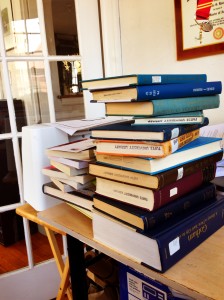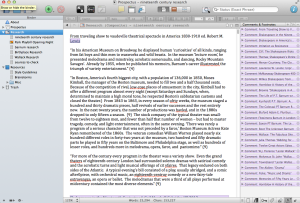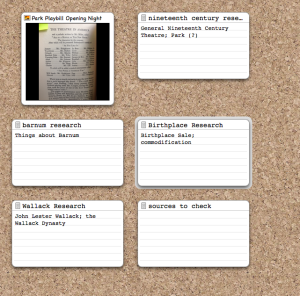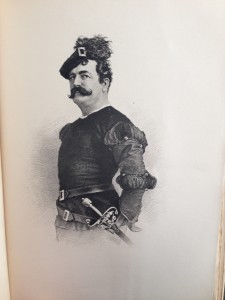Hello, everyone! I’m back from a lovely one-week vacation to the South of our great land where I was able to accomplish several things (not the least of which being visiting my lovely little sister, and gallivanting around her place of employment… Disney. Yes, I know,

While I was in Disney this might have happened….
life is hard when you’re a Rosvally).
Today, I was back in the saddle hitting the ground running. I’m honored to be a Fellow at the Tufts Graduate Institute For Teaching program this summer and, as such, am participating in twelve seminars designed to help improve my skills as a teacher. I’m learning a lot already (today was the first day) and am overjoyed to be meeting and interacting with other graduate students from (gasp) different departments. It’s nice to have somewhere to go first thing in the morning; this kind of structure really kicks off the day right and is something that I’ve been missing in recent semesters due to coursework having come to a close. Dissertation work can be extremely isolating, and this Institute is really the perfect combination of socialization, enrichment, professional development, and personal accountability for me at this point in my graduate career.
As part of seminar this morning, one of our glorious presenters gave us a sheet of quotations about war meant to spark conversation. None of them were accredited (in an effort not to bias us) but after the exercise was over, he went down the list and let us know where each had originated. I was perplexed when he reached one axiom that we’ve probably all heard before: “all is fair in love and war”. The presenter attributed it to Shakespeare and then admitted that it’s been said by people ad infinitum the world over since the dawn of time and moved on.
I was dubious about accrediting this quotation to my man Will because, first thing’s first, the syntax really doesn’t scream “Bard” to me. Secondly, and this is where things get hazy, I wasn’t recalling it from any of the plays off the top of my head (this is often a good source of information but not necessarily definitive; while I can probably quote more than is healthy for a human being, I’m not going to claim an encyclopedic knowledge of the entire canon…yet).
The attribution was really a minor point and I didn’t want to hang the class up with something completely tangential to what we were actually talking about. However, the factoid kept wheedling me after we left seminar (so much so that I was inclined to look it up on my own and determine where this famous phrase came from).
Sure enough, I was right. It’s not a Willism. The first round of answers I got were mixed; some attributing it to English novelist and playwright John Lyly and some to English novelist Francis Edward Smedley.
Further investigation proved that both of these answer are, after a fashion, correct. The Lyly derivation is actually a paraphrase of a line from Lyly’s 1579 novel, Euphues: The Anatomy of Wit. Lyly actually wrote: “the rules of fair play do not apply in love and war” (you can see where the paraphrase is a bit more elegant for today’s syntax).

pretty flowering tree I found on campus today
Which left the Smedley question. How did he get mixed up in this? I looked into things a bit more and discovered that, in fact, the first appearance of the quote as-is was in the 1850 novel Frank Fairleigh by Francis Edward Smedley (who apparently, in addition to one of the funniest names in literary history, also had a flare for the axiomatic).
Neither of these people are Shakespeare (though, funny enough, Lyly is noted for having written pretty copiously for the child companies, popular amongst upper class Elizabethan audiences and notorious for “stealing” audience members from the adult companies such as Will’s). So there you go! While it’s often a safe bet to attribution quotable quotes to Will, it’s never a sure-fire thing (as proven by this, your little bit of pop up dramaturgy for today). I hope that your week is off to an incredible start! Mine certainly is.








